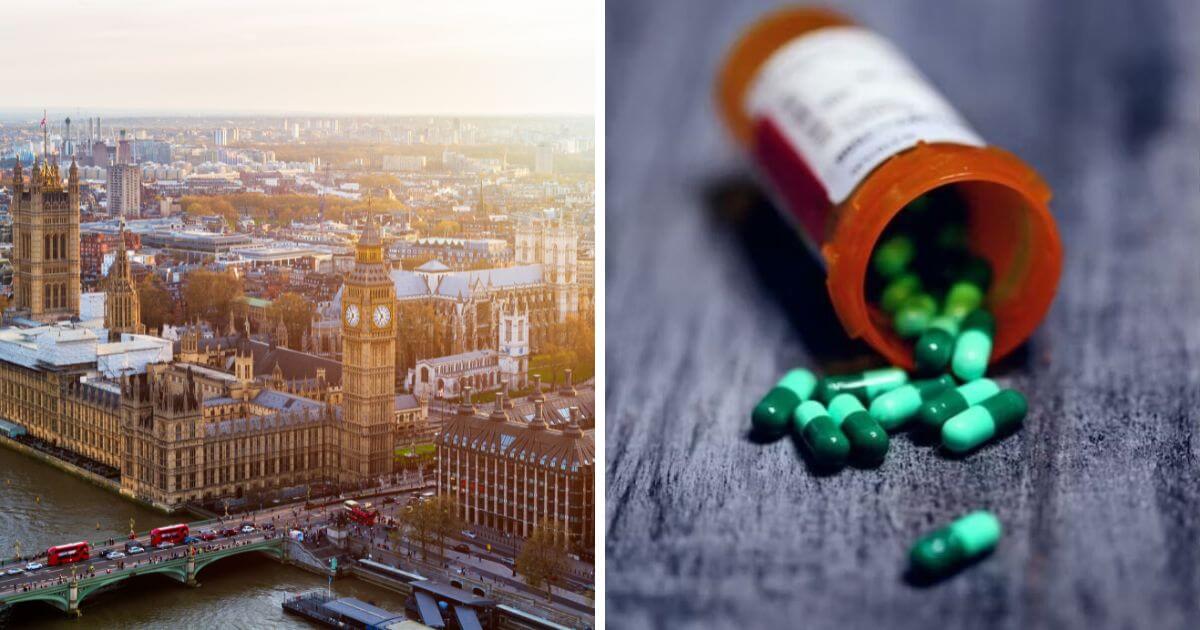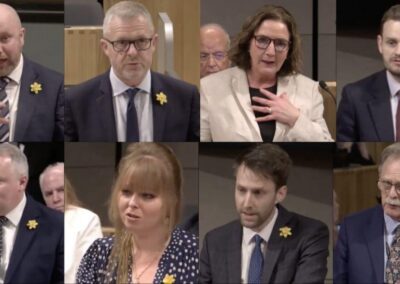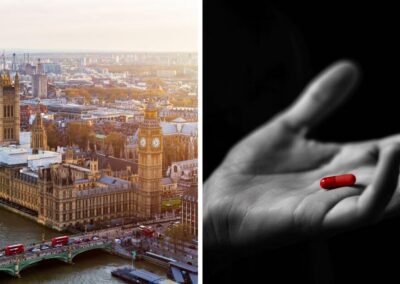A new poll published in The Independent has revealed that 70% of those who hold an opinion believe that Peers have every right to vote against non-government legislation if they consider that it poses a significant risk to vulnerable lives.
The poll, conducted by Whitestone Insight of 2,071 adults, found that only 1 in 5 (20%) believe that Peers should not vote down legislation introduced as a Private Members’ Bill, even if they think it could cause harm to the vulnerable.
Earlier this month, the lead sponsor of the Bill in the House of Lords, Lord Falconer, called on Peers not to reject the Bill, claiming the public would be “unimpressed” if the Lords attempt to block the Bill. The polling released over the weekend refutes this claim.
House of Lords under no duty to pass assisted suicide Bill, experts say
The poll was released a week after the second day of Second Reading of the Terminally Ill Adults (End of Life) Bill in the House of Lords. Since the Bill is not a Government Bill and was not part of a manifesto promise, the Lords are constitutionally entitled to block or heavily amend the Bill.
In a piece for The Spectator, Former No.10 Director of Legislative Affairs, Nikki da Costa, explains that the House of Lords is under no duty to pass a Private Members’ Bill such as the assisted suicide Bill, particularly as it was not part of the Government’s manifesto.
Constitutional scholar Professor Mark Elliott explains that for bills of this kind, the Lords can lawfully withhold consent or use the “ping-pong” process to prevent agreement between the Houses, meaning the Bill would fail.
In his speech at Second Reading on 19 September 2025, the Shadow Attorney General Lord Wolfson made it clear that the Lords did not have to pass the Bill, stating “Some have suggested that, because the House of Commons passed the Bill, we should not reject it. For my part, I reject that contention”.
“I accept that this House should not, except in the most exceptional of circumstances, unceremoniously dispose of a Bill passed by the House of Commons. So the fact that the House of Commons passed the Bill means that we need to take it seriously, and we are taking it seriously, but it does not mean that we have to pass the Bill as it is or even as it might be following amendment. That is right as a matter of constitutional principle, but it is especially right in the case of this Bill”.
Further commentary in The Spectator stresses that blocking a controversial Private Members’ Bill is well within the Lords’ remit, given their constitutional role as a revising chamber.
Sky Deputy Political Editor Sam Coates noted that even a senior Government figure who supports the Bill admitted that “the chances of it passing are worse than 50/50.”
Misleading comments from leading supporter of assisted suicide in the House of Lords
Lord Falconer, long-time proponent of the legalisation of assisted suicide (who has attempted to change the law on assisted suicide on seven previous occasions), has said it is not the role of the Lords to reject this Bill, despite the fact that, as a Lord, he has voted against numerous Bills with Commons approval.
In an interview on the BBC’s Today programme after the Leadbeater Bill narrowly passed Third Reading in June, Lord Falconer was asked whether the role of the Lords was to “ultimately uphold something that the directly elected members of the Commons have decided to go ahead with”. He replied, “That’s correct”.
He reinforced his position on this during his House of Lords Second Reading speech on the Bill, saying, “The Bill has been passed by the Commons. The decision on whether to change the law in our democracy should be for the elected representatives. We should improve where we can, but we should respect the primacy of the Commons”.
However, as has been pointed out by a number of commentators, Lord Falconer has not always abided by the principle that the role of the Lords is to uphold the decisions of the Commons.
In fact, on at least six occasions, Lord Falconer has either directly opposed Bills approved by the House of Commons or sought to amend legislation in ways not approved by the Commons.
Other supporters of assisted suicide have made similar misleading claims
Several other supporters of the Leadbeater assisted suicide Bill have made similar claims to Lord Falconer regarding the ability of the Lords to reject a Private Members’ Bill that has come from the House of Commons.
Kim Leadbeater has said the Lords should not block the Bill, saying, “[Peers’] experience and views are a really important part of the process. What I’m also clear about is their job is to scrutinise and to make suggestions where necessary, but it isn’t to block legislation”.
Peers who are supportive of assisted suicide also made similar claims during the Second Reading debate on 19 September, including Baroness Thornton, who said, “Our job is to scrutinise it further and improve it if we need do so. It is not our job to kill this Bill”. This is despite Baroness Thornton moving a motion in 2012 to reject the Coalition Government’s Health and Social Care Bill at Third Reading, which had been voted for by the Commons.
Baroness Blackstone said, “We must not forget that the elected House has supported it; our task is to scrutinise, not reject it.” In 2012, Baroness Blackstone voted for Baroness Thornton’s motion to reject the Coalition Government’s Health and Social Care Bill, which had been voted for by the Commons.
The lobby group Dignity in Dying have also made similar claims in an email to supporters – and has asked their supporters to repeat this to Peers, saying, “The role of the Lords is to further scrutinise it – not to scrap it completely.” This claim has also been included in the template emails that they have in the tool for their supporters to send to Peers.
The Head of Comms at Dignity in Dying has been pushing the same line and has been heavily criticised by a number of experts online for doing so.
The “public are aware and support the ability of” the Lords to reject the Bill
Baroness Grey-Thompson, the former Paralympian and leading disability campaigner, said, “Despite attempts to suggest otherwise, it seems the public are aware and support the ability of the Lords to reject this Bill should we think it necessary. The Bill is not a Government Bill and did not appear in any manifesto at the last election, so the Salisbury Convention does not apply”.
“The most vulnerable in our society are entitled to our unwavering protection and the best quality care – something not provided by this Bill. If this is not possible within the confines of the Bill, we will not hesitate to say so”.
Former minister for disabled people, Lord Harper, said, “It is striking that, of those who take a position, the majority of people would support the House of Lords rejecting the assisted suicide Bill should it become necessary. The constitutional duty of the House in scrutinising this poorly drafted Bill is perfectly clear”.
“If it cannot be improved sufficiently, it is our responsibility to ensure it does not become law. This is not a manifesto Government Bill, and we should not treat it as such”.
Spokesperson for Right To Life UK, Catherine Robinson, said “Despite attempts to suggest otherwise, the Lords can and indeed should reject this Bill, and the majority of the public are not opposed to their doing so”.
“Although the Bill passed the Commons, momentum remains with its opponents. Support collapsed between Second and Third Reading from a 55-vote majority to only 23. The Bill left the Commons lacking a majority, with fewer than half of all MPs backing the Bill at its final stage”.
“The most vulnerable in our society are entitled to our unwavering protection and the best quality care, not a pathway to assisted suicide. Evidence from abroad shows that, if this legislation becomes law, large numbers of vulnerable people nearing the end of life would be pressured or coerced into ending their lives”.
“With the NHS described by our Health Secretary, Wes Streeting, as ‘broken’, and every year, 100,000 people still dying without the palliative care they need, this assisted suicide legislation is a disaster waiting to happen”.












